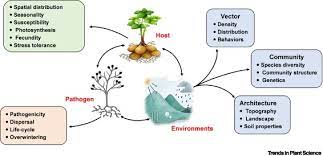Eps 2: discussion between hosts about the future of family, and how the traditonal structures will change
In the podcast, hosts discuss the future of family and how traditional structures may change. They highlight the challenges that families face in the modern era, including shifts in gender roles and changing attitudes towards marriage and children. The hosts also explore possible future changes, such as the emergence of non-traditional family structures, and the impact of technological advancements on family dynamics. While there are no easy answers to the questions posed, they emphasize the importance of staying open-minded and adaptable in the face of evolving family dynamics.
| Seed data: | Link 1 |
|---|---|
| Host image: | StyleGAN neural net |
| Content creation: | GPT-3.5, |
Host

Angel Sims
Podcast Content
The family has always been a fundamental aspect of society, providing a sense of stability, support, and love to its members. However, the traditional family structure has undergone various transformations in the past few decades, and as a result, people are beginning to question its relevance in modern society.
This discussion on the future of the family has gained momentum due to the emergence of societal changes such as the rise of single-parent homes, same-sex couples raising children, and a growing number of people who reject the traditional gender roles assigned to men and women.
To kick-off this discussion, let's first consider the traditional structure of the family. Traditionally, the nuclear family structure, which consists of a mother, father, and children, was the norm. Additionally, children were expected to be raised within the confines of a family unit, where their parents were the primary caregivers responsible for their upbringing. However, in recent times, this traditional structure has become less prevalent, and there is an increasing rise of alternative family structures such as single-parent households and same-sex couples raising children.
These alternatives to the traditional family structure have given rise to various debates concerning how to define what a family is and what its fundamental roles are. As a consequence, some people argue that the traditional nuclear family structure has become outdated, and society needs to adopt a broader understanding of what a family is. They argue that a family can consist of homosexual parents, single parents, and even friends who live together and raise children.
On the other hand, other people view the traditional family structure as the gold standard as it provides the best possible environment for a child to grow up. They argue that children who are raised in non-traditional family structures may miss out on essential aspects of family life such as a mother and father, creating a void that would be hard to fill.
Another notable aspect of the evolving family structure is the shifting gender roles, as more women are now joining the workforce than ever before. As a result, they might not always have the time or opportunity to take on traditional roles such as the caregiver for their children, which may result in a lack of balance in the family dynamic. Some argue that this trend may have severe consequences for families and could create a negative impact on children's well-being.
Additionally, with the emergence of technology, social media, and the internet, the way families interact with each other has also undergone a fundamental transformation. In today's world, communication between family members is not limited to face-to-face interactions, but rather involves digital communication as well. This has led to a more dispersed, yet more connected family dynamic, whereby families can interact despite the physical distance between them.
In conclusion, the family structure has undergone significant changes in the past few decades, and the traditional structure of the nuclear family is no longer the only norm. Society is changing, and so is the family. Different family structures have emerged and are finding acceptance in the modern world, as individuals challenge the traditional structures that have long been upheld. While these changes have brought about new challenges, they also present a unique opportunity for us to redefine what it means to be a family.
As we look towards the future of families, we should aim to create a society that embraces a diverse range of family structures that cater to the needs of everyone, irrespective of their background, gender, or sexual orientation. A society that supports and cherishes the family and its various forms and recognizes the importance of its role in shaping the future of society.
